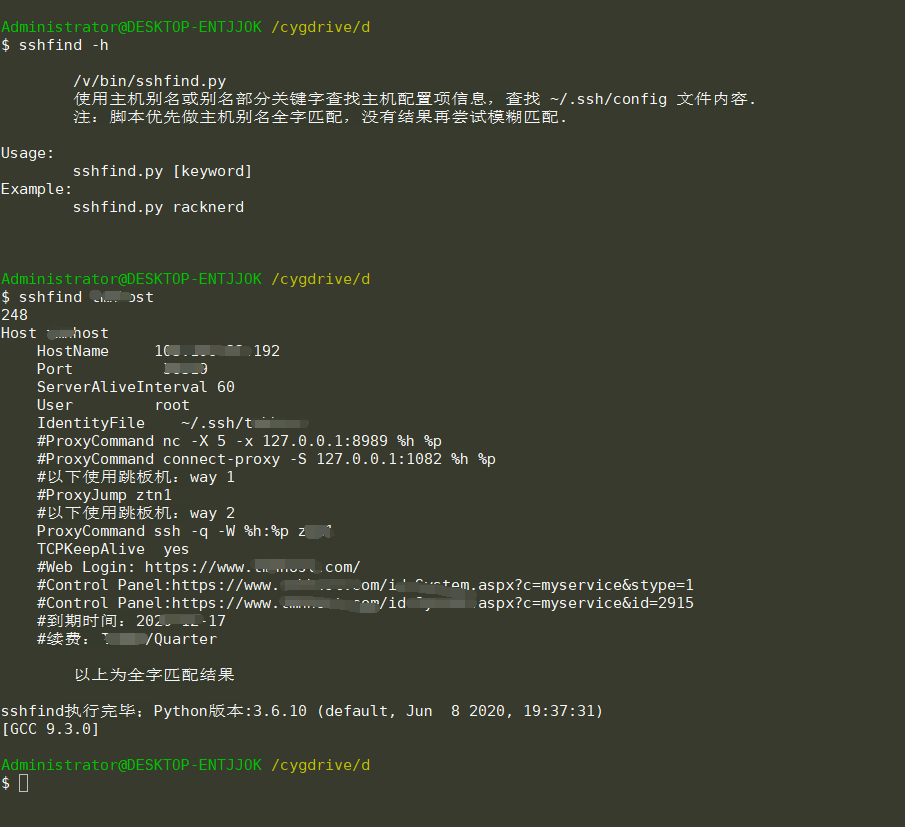sshfind快捷脚本:通过读取文件~/.ssh/config,利用主机别名查找主机其余各项配置信息并输出,对于~/.ssh/config拥有N多个主机配置信息时极为有用,
,在终端窗口下输入sshfind [主机名]即可搜寻,
如: sshfind mycloud
适用Python3版本,本人主要在Cygwin下使用
gist地址:(https://gist.github.com/hexiyou/b0bb2a9b3c697875cfac39375b550bff)[https://gist.github.com/hexiyou/b0bb2a9b3c697875cfac39375b550bff]
#!/usr/bin/env python3
# -*- coding: utf-8 -*-
#根据主机别名查找openSSH配置文件~/.ssh/config对应主机配置项
#自用sshfind命令python实现版本
#原始sshfind为shell脚本实现,参看:/v/bin/sshfind
import sys
import os
import re
sshConfigFile="~/.ssh/config"
sshConfigFile=os.path.expanduser(sshConfigFile)
if len(sys.argv)<2 or (len(sys.argv)==2 and (str(sys.argv[1]).lower()=="--help" or str(sys.argv[1]).lower()=="-h")):
print("""
/v/bin/sshfind.py
使用主机别名或别名部分关键字查找主机配置项信息,查找 ~/.ssh/config 文件内容.
注:脚本优先做主机别名全字匹配,没有结果再尝试模糊匹配.
Usage:
sshfind.py [keyword]
Example:
sshfind.py racknerd
""")
sys.exit(0)
else:
hoststr=str(sys.argv[1]).strip()
foundCount=0
wrapMatch=False #全字匹配标志符
with open(sshConfigFile,"r") as read_f:
Tag=False
for num,line in enumerate(read_f.readlines(),1):
#if re.match(r'Host .*[ ]?'+hoststr+'[ $]?',line,re.I):
if re.match(r'Host .*[^-\.]?'+hoststr+'[ $]?',line,re.I):
Tag=True
foundCount+=1
if re.match(r'.* '+hoststr+'( |$)',line,re.I):
#标识全字匹配
wrapMatch=True
#找到两个及以上主机时,打印空行隔开
if foundCount>=2:
print("\n")
#找到主机匹配则先打印开始行的行号,以供sshedit命令使用
print(num)
print(line,end='')
continue
if Tag==True and re.match(r'[ ]*Host ',line,re.I):
Tag=False
if Tag==True:
print(line,end='')
if wrapMatch==True and foundCount==1:
print("\n\t以上为全字匹配结果")
print("\nsshfind执行完毕;Python版本:%s"%sys.version)
注:另一shell版本参看:sshfind快捷查找主机命令-bash-shell版
